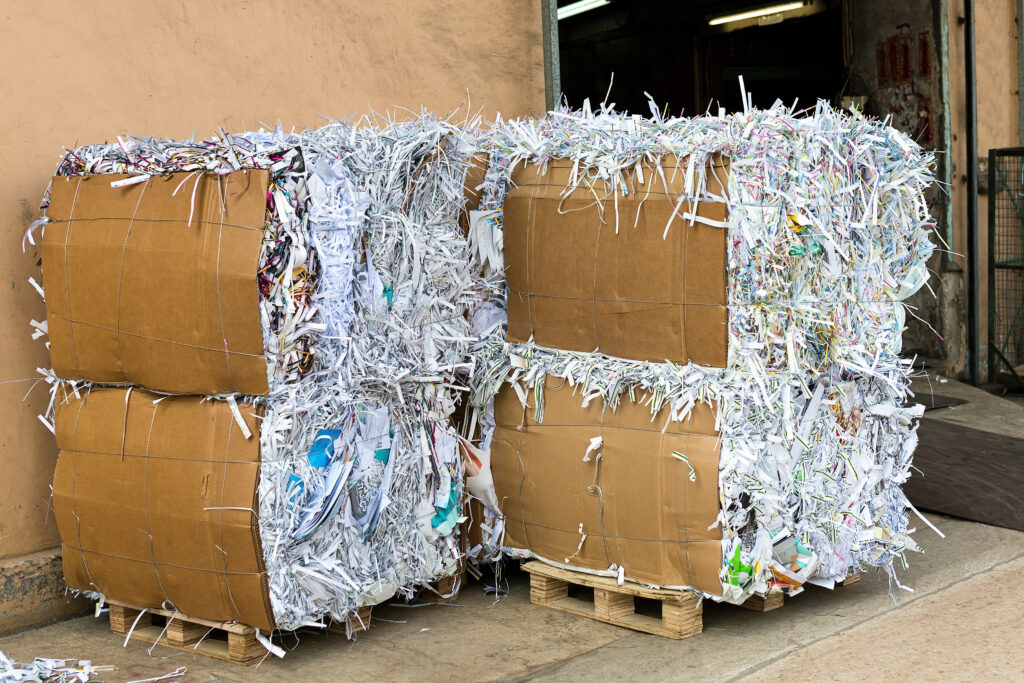Reserved judgement on the case, heard by Sheffield Employment Tribunal Office, has found in favour of the worker, Steve D. Wharton, who tipped off a local authority about the potential environmental damage. He was dismissed by Ward Recycling Ltd (the respondent in the case) earlier this year from its Clay Cross depot in Derbyshire. The company's head office is at its depot in Teesside.
While the company raised several reasons for the dismissal, the tribunal said its primary conclusion “is that the reason for the dismissal was principally a protected disclosure”.
Importantly, the Tribunal's role is not to advise whether the allegations by the whistleblower were correct but whether the dismissal was unfair.
Rare
The case is thought to be a rare instance where a worker has been dismissed after making a disclosure on environmental grounds and then won his case at an Employment Tribunal. It was heard from 7-11 July 2008 and in Chambers on July 24.
The idea of a “whistleblower” having protection in law comes under the Public Interest Disclosure Act 1998 which protects workers who 'blow the whistle' about wrongdoing. It applies where a worker has a reasonable belief that their disclosure tends to show one or more of the following offences or breaches:
-
a criminal offence;
-
the breach of a legal obligation;
-
a miscarriage of justice;
-
a danger to the health and safety of any individual;
-
damage to the environment; or
-
deliberate covering up of information tending to show any of the above.
The case involved a number of claims and counterclaims by the parties concerned and centred on the dismissal of employee Mr Wharton who worked at Ward Recycling's Clay Cross site. Ward is a subcontractor to paper recycling firm Abitibi Bowater. Mr Wharton was a driver involved in collection rounds of recyclables in two council areas, Chesterfield and North East Derbyshire.
Disclosure
The Tribunal noted that Wards took issue over the disclosure by Mr Wharton about waste paper allegedly being buried on site and questioned whether this disclosure was made in good faith and if it was appropriate to be made externally.
The disclosure concerned how the company had handled some waste paper which was collected in blue bags for the local authorities and usually sent to Abitibi Bowater for recycling.
Some of Mr Wharton's comments in his whistleblowing letter, which he gave to an officer at North East Derbyshire district council, noted by the Tribunal, was that “It is with shock and horror that I write to inform you that a vast amount of paper collected from the public, who have gone to the trouble of putting out their blue bags on the due day, is being buried.”
Mr Wharton made the disclosure on a Friday to Mr Andy Seakin of North East Derbyshire district council who immediately met with Carole Grewe, recycling officer at Chesterfield borough council. Ms Grewe informed David Jaffa, UK operations manager of Abitibi Bowater, of the disclosure but not the name of the whistleblower. The Tribunal remarked “One might ask why the local authority did not keep the information to itself prior to carrying out a snap inspection of the site.”
Chesterfield borough council confirmed to letsrecycle.com that it has a policy on “whistleblowing” and this includes that “All concerns will be treated in confidence and every effort will be made not to reveal the identity of an informant if they so wish.”
Evidence
Ms Lee Adams, chief executive of North East Derbyshire later wrote to the claimant, Mr Wharton, saying that in the absence of of substantive evidence and after an inspection by the council on February 18, the council could not act on the claimant's allegations.
Mr Wharton was suspended on 20 February 2008.
The Tribunal said the suspension ostensibly was because of other reasons.
The disclosure on environment grounds was the suggestion that Wards were wrongly and illegally “burying pulped paper” at the Clay Cross transfer station. The Tribunal notes: “The respondent [Wards] has consistently denied burying paper (other than accidentally or by putting it in the so called containment trench) and the local authority apparently found nothing amiss when they inspected on 18 February.”
The Tribunal then says: “What we need to consider is what was reasonably in the claimant's mind when he made the disclosure.”
Trench
The company, says the Tribunal findings, explained that whilst not actually burying paper, it had introduced the idea of a containment trench into which wet paper would be dumped apparently so that it could dry off before being taken away to a landfill site.
The judgement of the Tribunal says: “On the first point (should the disclosure have been made externally) we need to consider whether the claimant has brought himself within the provisions of Section 43G and in particular whether any of the conditions in the Sub-section 2 of that Section are met. The claimant's case is that at the time he made the disclosure he reasonably believed that he would be subjected to a detriment by his employer if he made the disclosure to his employer or to a prescribed person. On the basis that we have found that it was the claimant's reasonable belief that the paper burying he believed was occurring was being sanctioned, indeed commissioned, by Mr Barker, a senior member of the respondent's managment team, and bearing in mind that the respondent was a relatively small company, we agree that the claimant would have found himself in a position of simply telling an employer what he believed it already knew. That is to be contrasted with a perhaps more typical whistleblowing case where the alleged malpractice is occurring at a lower level and so would be entirely unknownn to the employer, from whom protection could then be expected. We therefore find that the claimant comes within the provisions of Section 43G(2)(a) and that he meets the other requirements set out in Section 43G(1).
“It follows therefore that we find that the claimant did make a protected disclosure on 15 February 2008 when he and Mr Martin Barnfield delivered their statements to the Chesterfield borough council and the North East Derbyshire district council.”
The Tribunal then points out that it is not for it to decide whether the respondent had illegally buried paper and “was on 16 February desperately digging it up again.”
Automatically unfair
The Tribunal goes on to find that the principal reason for the dismissal was the protected disclosure and accordingly that the dismissal was automatically unfair for that reason.
The Tribunal also records that on Saturday 16 February – “a day that would not normally be a working day – what the respondent's have sought to describe as a 'general clean up of the Clay Cross site took place'.”
It also refers to a number of strongly worded emails between the management team, including Ward managing director Mr G Godwin, and their external HR advisor Mr Austin Morley and comments that that there was a “highly prejudicial atmosphere among the group as regards the claimant.” The Tribunal also comments on issues relating to the “general unfairness of the dismissal”.
The Tribunal comments that Mr Morley was not the correct person to undertake the appeal by Mr Wharton against his dismissal. “We believe he had given more than just advice as regards the decision to dismiss and he of course had been privy to Mr Godwin's robustly expressed views about the claimant. We cannot accept Mr Morley's advice that he 'took no heed' of these comments.”
Drying out
Ward Recycling has not commented on the Tribunal's findings. However, it is understood that the the company's view of the paper burying claims at the centre of the case was that some material unsuitable for recycling had been placed on land at the transfer station for drying out before being sent to landfill. The material had originally been caught in a containment trench alongside vehicles which were being filled with material for Abitibi Bowater. There were drainage issues in the trench and as a consequence material which fell into it had got very wet early in February and so was not suitable for recycling and the aim was to send it to landfill in a drier state.
Environment Agency
The Environment Agency has told letsrecycle.com that in February this year it investigated allegations that Ward Recycling at Clay Cross had buried an amount of waste paper collected as part of a contracted local authority kerbside scheme.
The Agency told letsrecycle.com: “Following the complaint Environment Officers visited the site (which is operated under an exemption) to make an assessment of the general operations, to see if there were any obvious signs that waste had been buried and to make a judgment about the credibility of the complaint. The site was found to be relatively tidy and was being operated to a satisfactory standard that met the requirement of the exemption. The operator was able to produce waste transfer notes showing waste paper had been sent from the site to a paper mill for processing and there was no obvious evidence that waste had been buried on the site. Checks on our register of exemptions showed that the operator did not have an exemptions registered for all of the operations that were taking place on site.”
Conclusion
The statement continued: “Having visited the site we decided there was insufficient evidence to show that waste had been buried on site by the company and there was no justification for any further investigation. In making this decision we considered that the type of waste (waste paper) and the small amounts involved meant that even if material had been buried it would present a minimal environmental risk at this location. It also appeared from the site visit that the company were operating legitimately and that waste from site was being sent for appropriate disposal.
“Wards Recycling were advised of the need to register an additional exempt activity – this was completed before the deadline we set.”









Subscribe for free